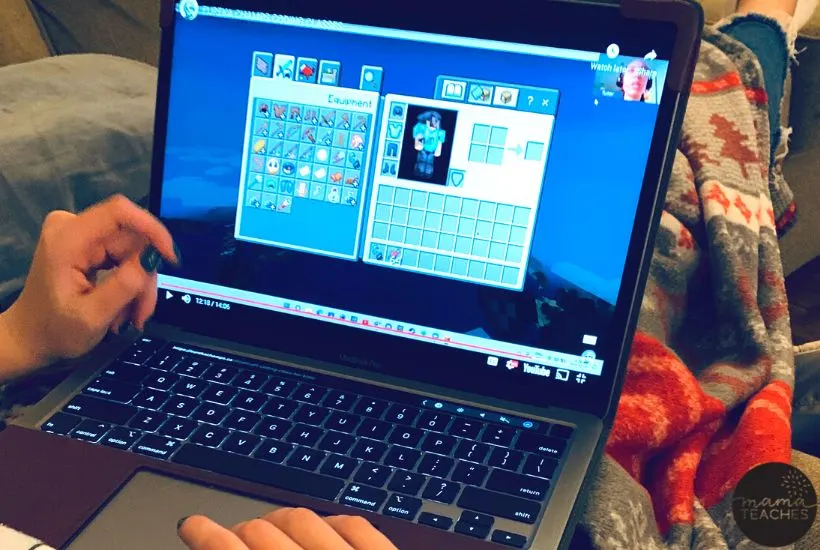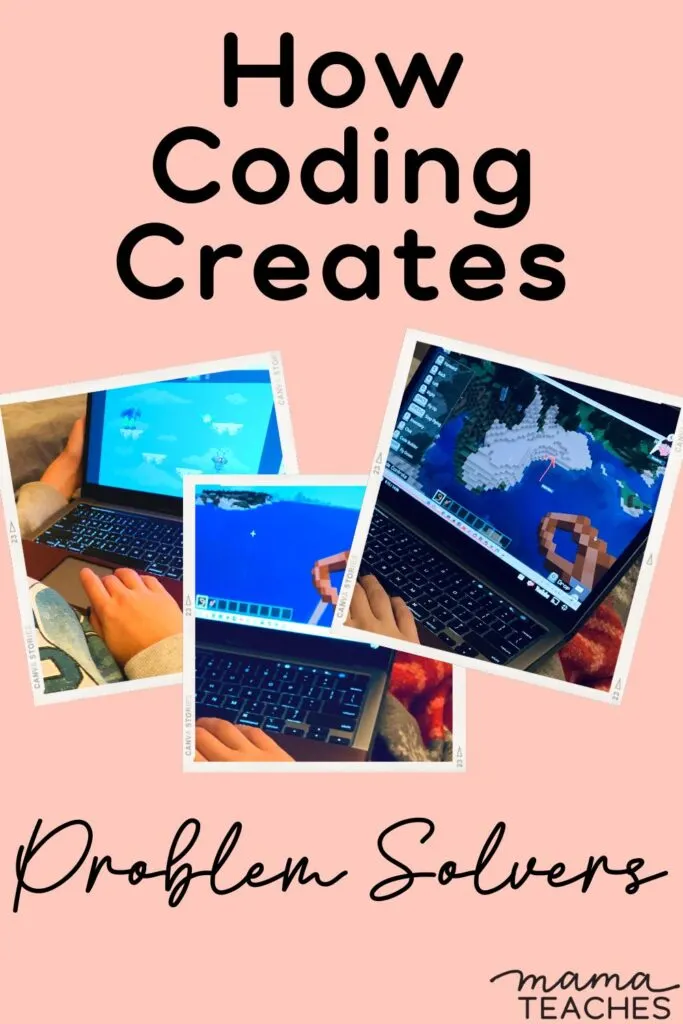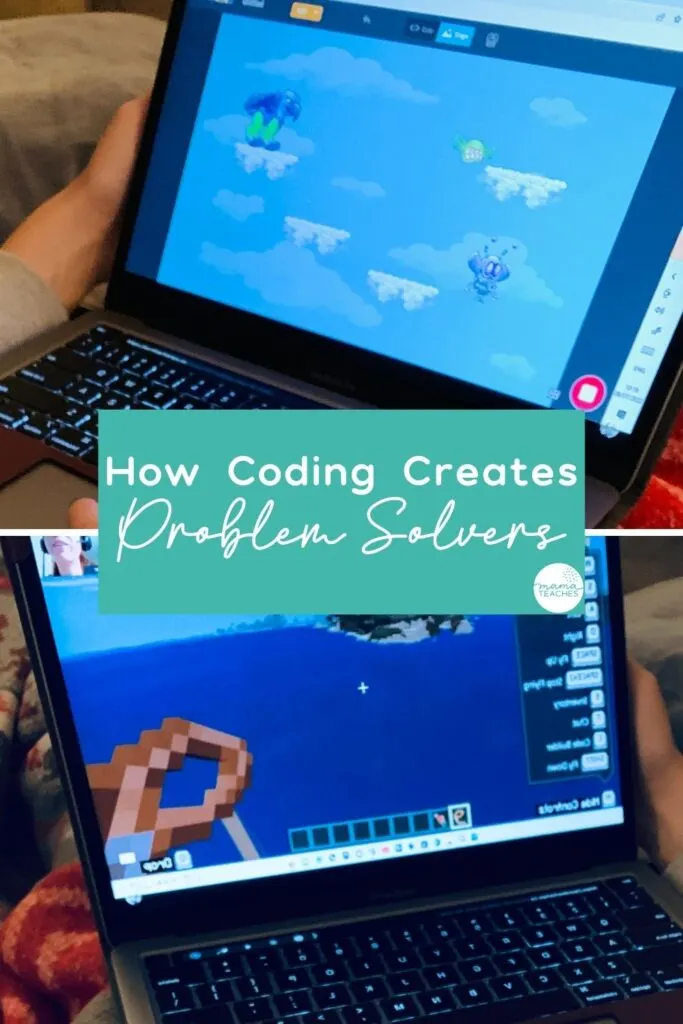Does every child need to know how to code?
Find out why you should introduce your kids to coding–and exactly how to do it!

This article contains affiliate links to things that you might like.
Disclosure: I was compensated for my time writing this post. All opinions are my own.
What Is Coding?
No doubt your education included some foreign language: French, Spanish, or German.
Today’s students need to add one more: coding.
Code is the language computers speak.
Computer coding, also called computer programming, is how we tell computers what to do.
Coding is not a language-based system; it’s based on numbers, symbols, and (you guessed it!) code words.
Once you learn the code, you can control how a computer program runs.
Skills Coding Teaches
We are quick to pigeonhole our kids. “Johnny doesn’t need to know how to code; he is going to be a doctor,” or “Sarah is more of a language arts person, so coding isn’t for her.” This type of thinking is short-sighted.
For the next generation, computer know-how is a must.
Kids will need more than a familiarity with word processing and spreadsheets; they will need to know how your computer “thinks.”
Even if Johnny and Sarah never use their coding knowledge in later life (although that is highly unlikely), they will gain valuable skills now.
Critical Thinking
We want our students to be future problem solvers, but we don’t give them much practice in this skill.
The occasional science activity or puzzle is not enough.
Coding is an exercise in problem-solving from start to finish.
You can’t zone out when you code.
You have to think critically about what you will do.
You must consider the problem from all sides and then craft a solution.
Even young children can think critically and problem-solve with coding activities.

Clear Communication
When one person talks to another, much of their communication is unspoken.
Even if a person isn’t straightforward in expressing themselves, we usually understand them.
“You know what I mean” is a common expression for a reason.
Communicating with a computer is entirely different.
When you code, you have to be precise in your commands.
Coding teaches clear communication, a skill we certainly want in our students.
Grit
Coding means repeated failure, which is actually a good thing.
When you code, you must try repeatedly until you get the commands right (this is true for novices to experts).
Students have to learn how to deal with failure, or they will never develop the strength to try again, to keep working on a problem until they find a solution.
Willingness to Try Something New
You want your kids to be lifelong learners.
That means they will need to have the courage to try new things.
Coding is a gateway; it’s a bravery builder!
Computer coding requires a different way of thinking.
It requires students to step into new territory.
Let coding be the first of many new things they will try!
Practical Math Skills
The reluctant math student needs to see the why of math.
“Why do we need to learn this stuff?” or “When will we use this in real life?” Coding is one of those answers.
Coding is the practical application of many math concepts–from basic addition and subtraction up to trigonometry.
Creativity
If you have artistic and creative students, they will love coding.
Think of the tools and media an artist uses to create a painting: paint, canvas, crushes, etc.
Computer code is just like those tools.
You can use the tools to create highly imaginative projects, like animations, digital art, and video games.

Ways to Introduce Kids to Coding
Thankfully there are many outstanding programs to introduce kids to coding.
It’s not just zeroes and ones!
Eureka Champs Online Coding Classes
There is a lot to be said about having an experienced teacher teach coding versus using a self-paced option.
For those who understand the importance of and impact that a live teacher can have on a student’s understanding, enthusiasm, and development, Eureka Champs is definitely the way to go!
Eureka Champs hosts online coding classes for children ages 6-10.
The hour-long classes are teacher-led and Zoom-based. Students share their screens with the teacher and, together, they work through building code, developing gameplay in Minecraft, and even creating worlds from scratch.
The subscription-based classes run in sets of eight and the classes are limited to 3-4 students at a time, so that everyone is able to get the individualized attention they need.
From their very first Eureka Champs Online Coding Class, students are learning how to code and program!
Eureka Champs strongly believe that teaching kids coding gives them a competitive edge and opportunities for a career in computer programming that will enrich their lives.
That attitude and passion for having fun while coding is conveyed in all of their lessons and interactions with students.
They make learning how to code something kids look forward to and get excited about.
New students get 20% off their first 8-hour package with the code First_Booking.
You can also test out the classes with a FREE Trial Class to gauge your child’s level of interest!
It’s a great program to add to your child’s curriculum (or after school activities!) and, with nothing to lose, it’s a must-try!

CodaKid
Do your kids like Roblox and Minecraft?
CodaKid teaches kids the basics of coding with video lessons and projects that apply to the games kids love.
It’s a good option for self-paced, student-led coding exploration.
Scratch
Developed by the Massachusetts Institute of Technology (MIT), Scratch teaches kids to make stories, animations, and games through coding.
The visual interface is kid-friendly; you simply stack code like Lego blocks.
You can share games internationally across the coding community, and it’s all FREE!
Getting Kids Into Coding
Perhaps coding is not in your wheelhouse, so you are reluctant to present it to your kids.
How will you teach it?
The good news is that these sites will teach coding to your students (and you, if you want!), so no expertise is required on your part.
Introduce your students to coding to reap the benefits of critical thinking skills, grit, creativity, and so much more!
